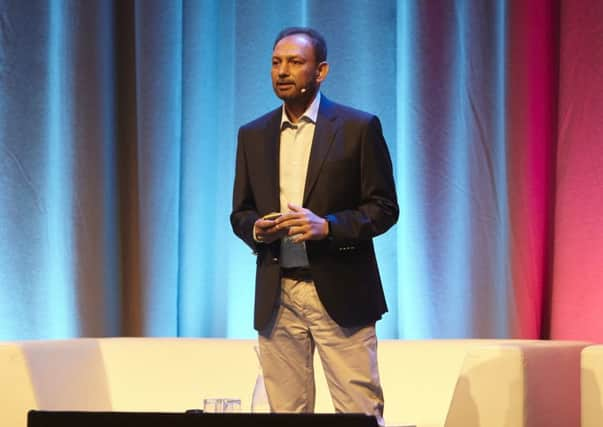NHS in Scotland must move from '˜stethoscope to data-scope'


Predictive analytics - based on information shared between experts at a local level - can be used to help solve pressing societal issues such as childhood obesity, said Professor Mahmood Adil, medical director of NHS Scotland’s information services division (ISD).
“People are living longer and we need to go beyond the stethoscope,” he said. “We need to understand all the data we have available. We need to know what sort of population we have and how we then make the right interventions.”
Advertisement
Hide AdAdvertisement
Hide AdProf Adil was speaking at the second annual Data Summit in Edinburgh, which brought together industry experts to share examples of how data can transform lives through the public sector as well as aid businesses.
Scotland is said to have some of the best health service data available anywhere in the world, with few other countries having information which combines high quality data, consistency, and national coverage.
The ISD is already able to predict the individual risk of more than four million Scots being admitted in hospital.
“And our prediction is almost always 100 per cent right,” added Prof Adil. “We share this information with clinicians and our health boards so they can plan proactive interventions to prevent admissions and save lives.
“On top of that, our analysts were able to look at the data and realise that two per cent of the Scottish population was using 15 per cent of all NHS resources. If we can identify these individuals, make the right interventions, and improve their quality of life.”
Prof Adil also hailed the work of the Scottish Burden of Disease (SBoD) study team - one of the few examples of its kind anywhere in the world - and its potential to localise data.
Last year SBoD published new analysis which revealed the extent to which different diseases affect Scotland’s health and life expectancy.
The analysis used an internationally recognised approach, referred to as ‘Burden of Disease’, to quantify the difference between the ideal of living to old age in good health and the situation where healthy life is shortened by illness, injury, disability and early death.
Advertisement
Hide AdAdvertisement
Hide Ad“We are going to provide this data at a local level, so local authorities are able to view it,” said Prof Adil.
The ISD is now collaborating with UNICEF and the Data Lab, the Scottish Government-backed organisers of the Data Summit, on tackling childhood obesity.
“There are two data challenges,” said Prof Adil. “Can we identify the obesity level in children at a local and national level. And the second is: what causes obesity?”
Since 1998 the proportion of children in Scotland aged 2-15 at risk of being overweight and obese has fluctuated between 29 per cent and 33 per cent, putting these children at risk of serious health problems such as type 2 diabetes.
ISD, the Data Lab and UNICEF are now calling for public and private organisations to collaborate for the good of Scottish children by sharing data.
